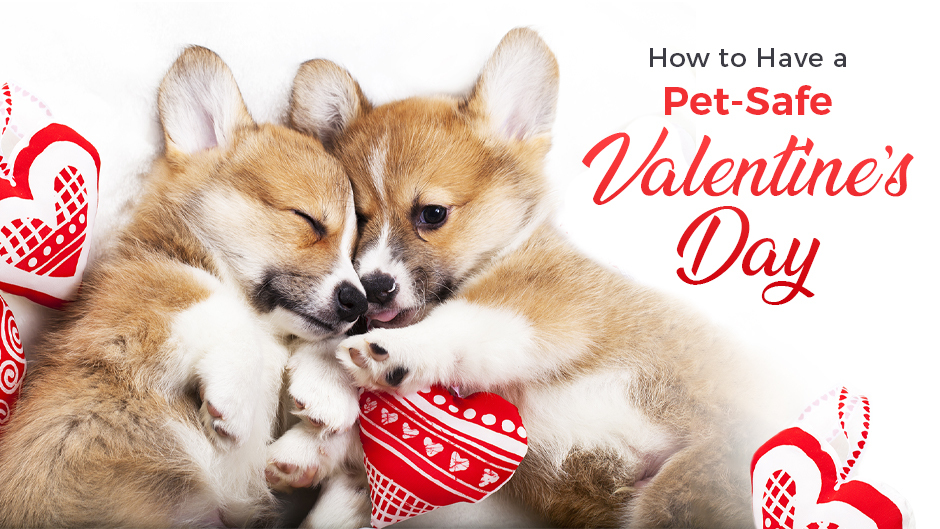With Valentine’s Day just a few days away, you may be busy planning for a romantic evening at home or putting up decorations. You probably aren’t planning an emergency visit to Minnesota Veterinary Hospital. Unfortunately, pets can get themselves into trouble quickly by ingesting chocolate, flowers, and other things associated Valentine’s Day. That’s why it’s important to take a few simple precautions before the big day arrives.
Pet Dangers You Might Not Have Considered
If you want to give your pet a treat for Valentine’s Day, skip chocolate that’s meant for humans. Even a tiny amount of chocolate can be toxic to dogs and cats, but they don’t know that and may try to sneak your treats anyway. Fever, vomiting, restlessness, seizures, and hyperactivity are some of the obvious signs of chocolate toxicity in companion animals. It’s important to seek immediate veterinary help if your pet displays any of these symptoms.
Roses and lilies are popular Valentine’s Day gifts. The thorns of roses can be harmful to your pet if swallowed and toxins in lily petals can be deadly to cats. If you have a cat, avoid bringing home Tiger, Stargazer, or Asiatic lilies since these are especially harmful to them. Cats who eat the leaves of these lily plants can experience acute kidney failure causing death within 48 hours. Dogs typically only get an upset stomach if they ingest lilies.
Seek Immediate Help if Necessary
Your dog or cat may still become sick or injured checking out Valentine’s gifts despite your best prevention efforts. Please contact Minnesota Veterinary Hospital during regular business hours or the Pet Poison Helpline at other times for assistance.
Photo Credit:

